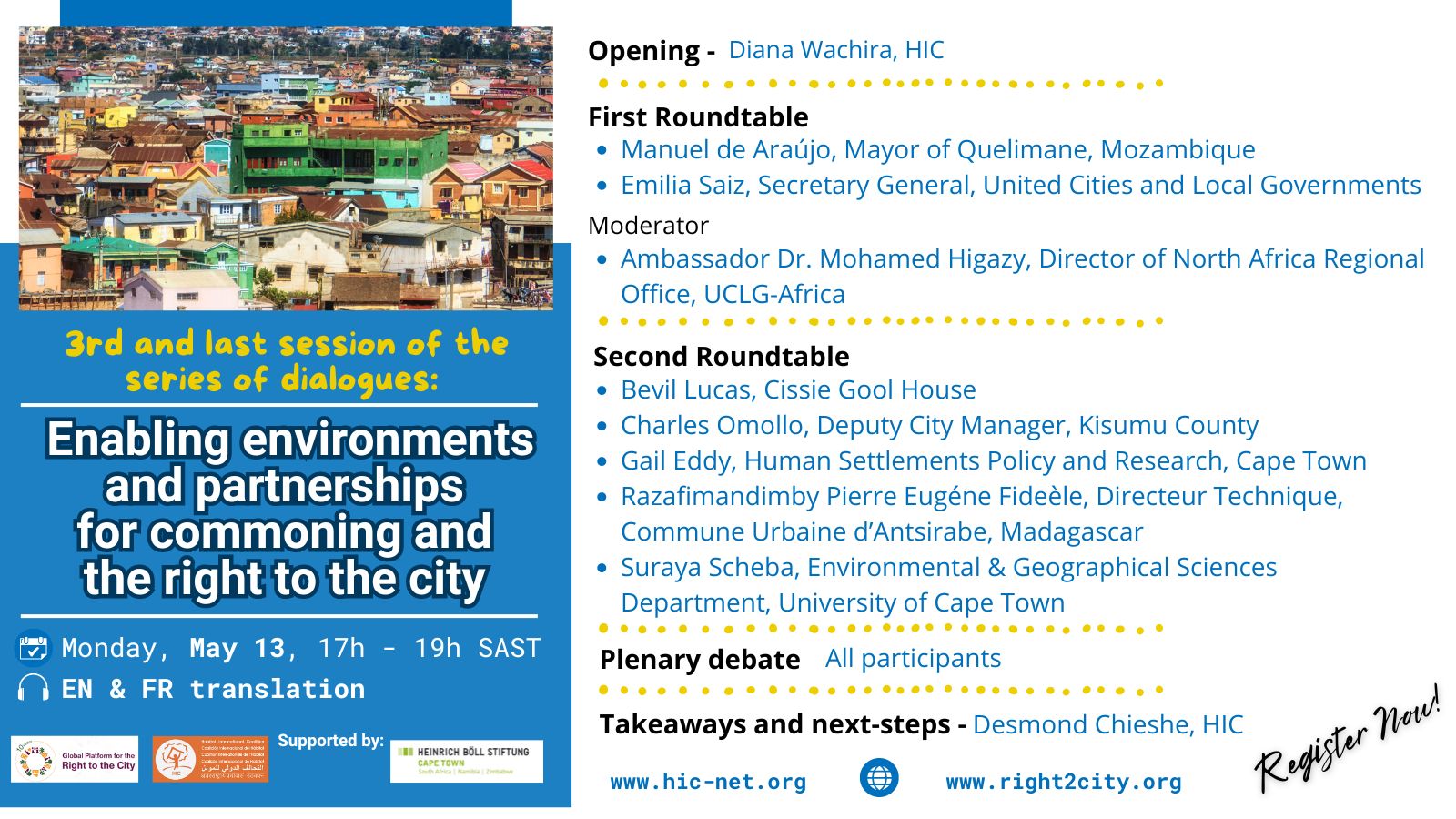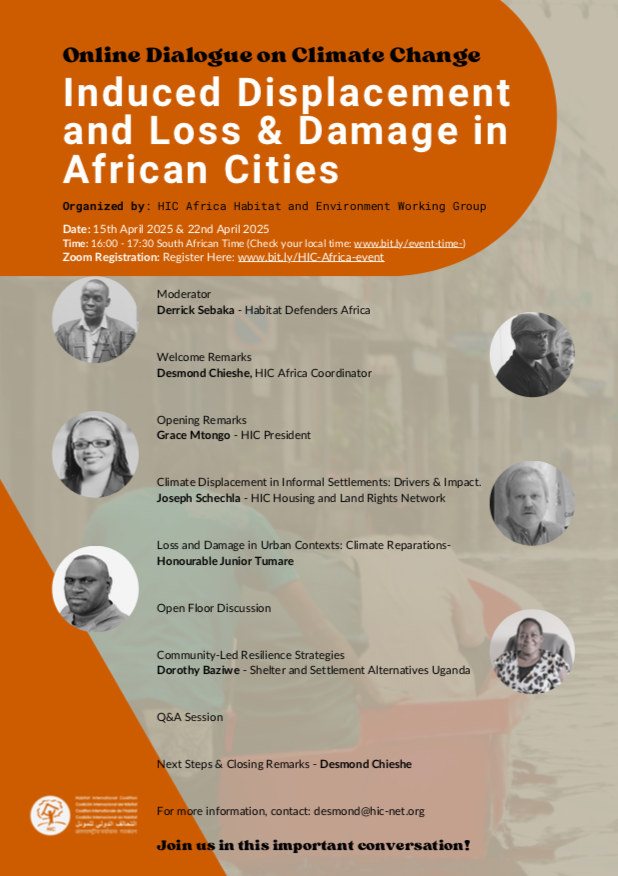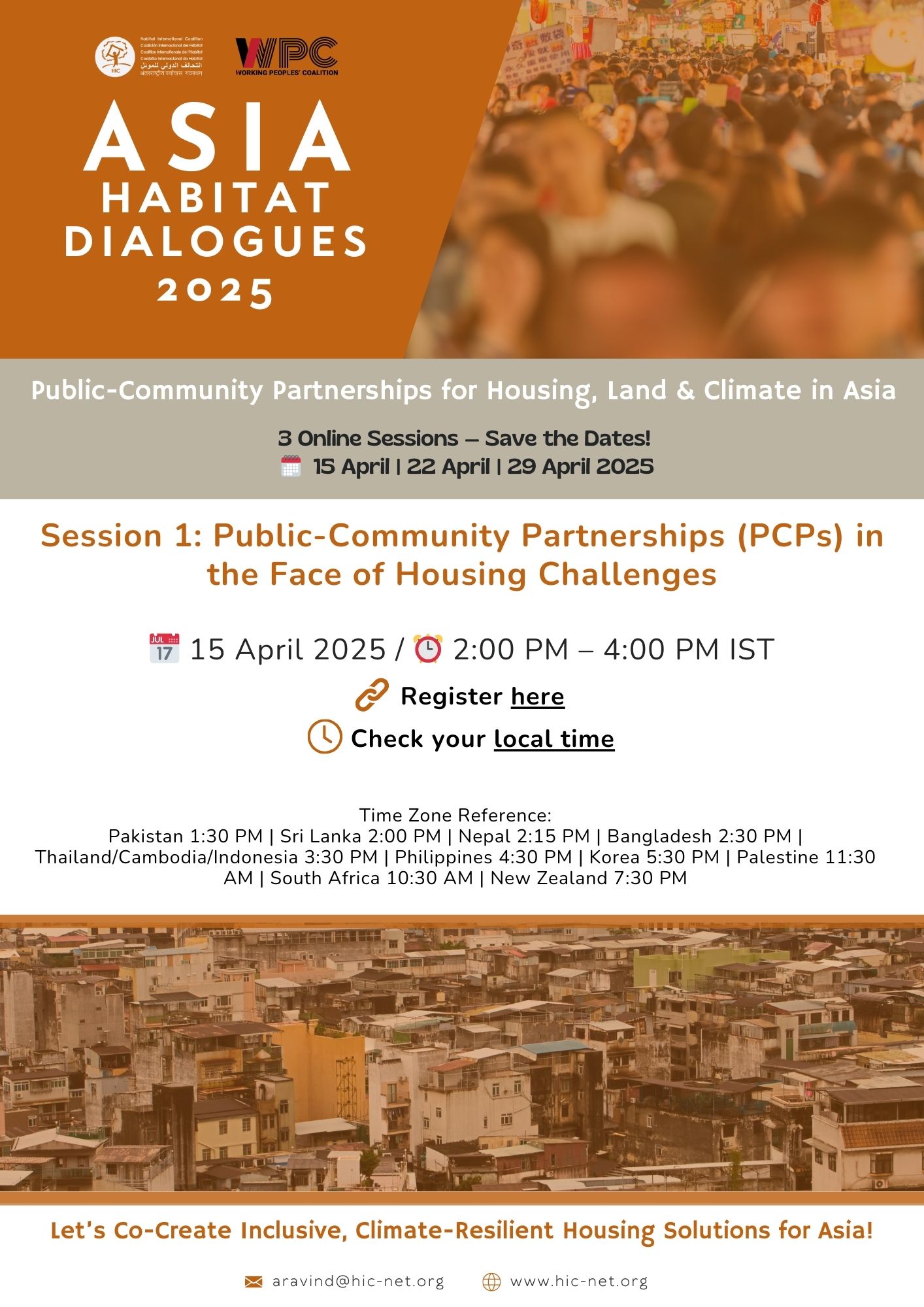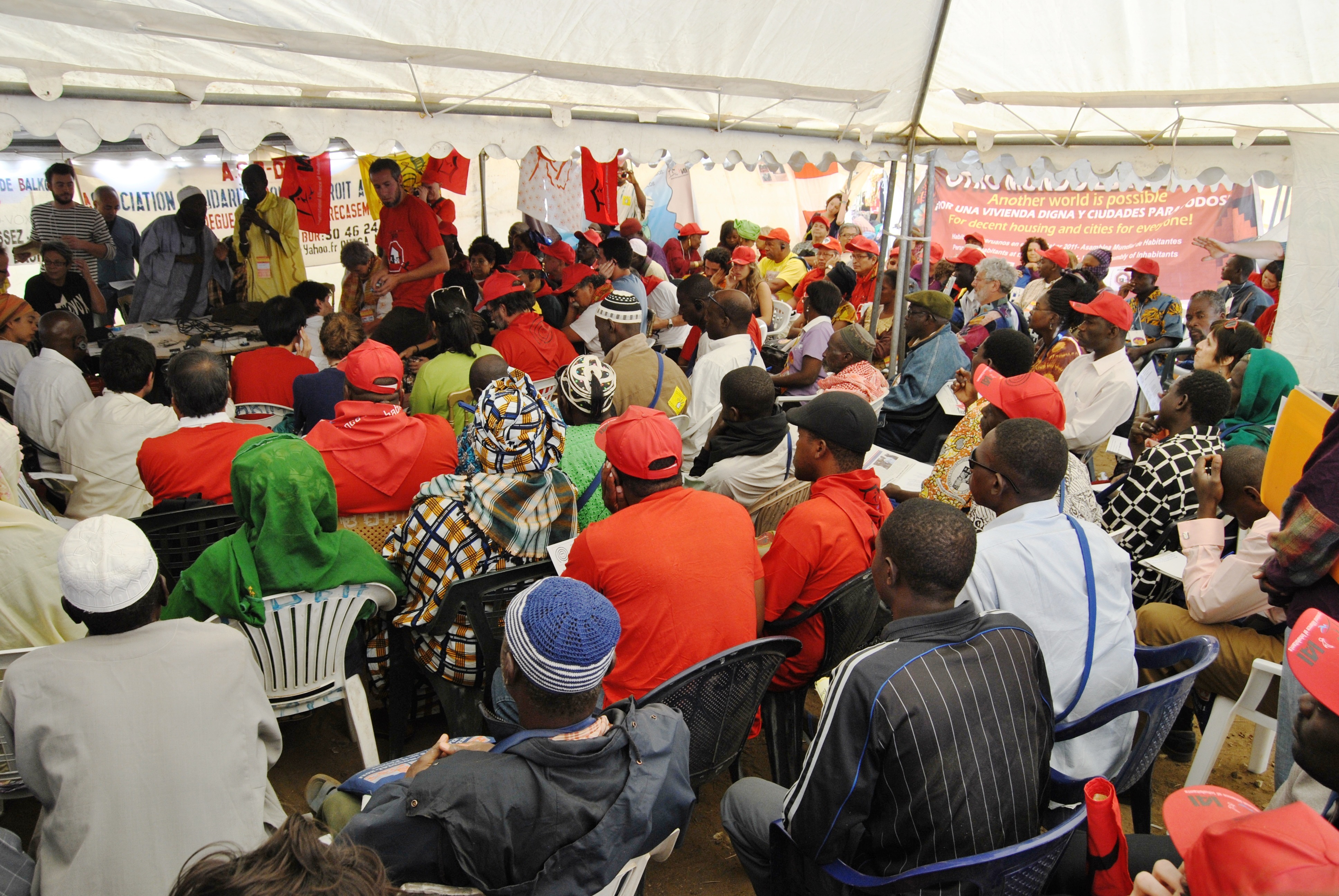Session 3: Fostering commoning and Right to the City: Enabling environments and partnerships
How to build and enlarge a community of commoners? What roles can public-community partnerships play in addressing shared and diverse challenges? How do these dynamics feature and differ in the diverse social, political and economic contexts of Sub-Saharan Africa?
Participatory methodology including roundtable conversations with representatives of different sectors.
Date: Monday, May 13, 17h – 19h SAST (check your local time here).
Session structure:
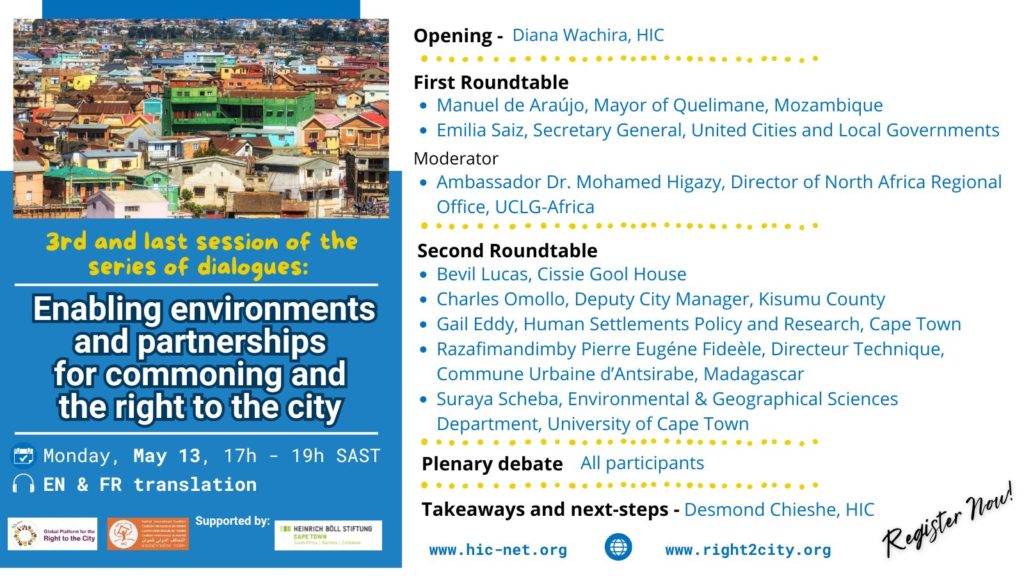
| Section | Description | Responsible | Duration |
| Opening | Welcome and general introduction
Main takeaways from the previous sessions + session structure |
Diana Wachira, HIC | 12 minutes |
| First Roundtable | What is the relevance of public-community partnerships for advancing housing and land rights? Possibilities and challenges of public-community collaboration with a particular focus on land, housing and basic services:
|
Moderator:
Ambassador Dr. Mohamed Higazy, Director of North Africa Regional Office, UCLG-Africa |
25 minutes |
| Second Roundtable | The role of different actors in promoting, protecting and fostering commoning initiatives: lessons learnt and key recommendations.
How do you conceive public-community collaboration from a local perspective? What are pathways for advancing those in relation to housing and land? |
Lorena Zárate, GPR2C | 35 minutes |
| Plenary debate | Collective discussion based on presentations and comments, complemented by some guiding questions:
|
All participants
Moderator: Yolande Hendler, HIC |
25 minutes |
| Takeaways and next-steps | Sum-up some of the main points of the session + next steps 7 & potential for follow-up | Desmond Chieshe, HIC | 10 minutes |
Why are commoning initiatives a solution to the challenges faced by cities in Sub-Saharan Africa?
Cities and human settlements in Sub-Saharan Africa face profound challenges stemming from rapid urbanization, socio-economic disparities, and spatial injustices. Increased privatization and commodification of housing and land, exponentiated by a background of colonial and/or apartheid spatial planning and regulations, lead to evictions and displacement, especially among communities living in situations of socio-economic and spatial marginalisation. However, amidst these challenges, commoning initiatives, with a right to the city approach, represent not only a direct response to this scenario, but also a radical alternative to the systems in place.
Commoning represents a form of organization for social wellbeing, differentiated both from private and public models, committed to the non-commodification (non-privatization) and collective management of vital resources such as housing, land and basic services. These initiatives, often driven by civil society groups and grassroots movements, seek to reclaim public spaces, challenge profit-driven development, and foster community-driven solutions, offering a pathway towards socio-spatial justice and democratic governance. Through collaborative efforts and dialogue between local actors and global networks, commoning initiatives hold the potential to empower communities, address inequalities, and build more inclusive and sustainable urban environments across Sub-Saharan Africa.
To find out more info about the rest of the sessions of the series of dialogues, click here.
Please, ensure your participation by filling this registration form.
